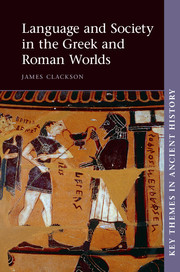Book contents
- Frontmatter
- Contents
- List of maps
- List of figures
- List of tables
- Acknowledgements
- List of abbreviations
- 1 The linguistic ecology of the Mediterranean
- 2 States of languages/languages of states
- 3 Language and identity
- 4 Language variation
- 5 Language, gender, sexuality
- 6 The languages of Christianity
- Conclusion: Dead languages?
- Bibliographic essay
- References
- Index
- Plate Section
1 - The linguistic ecology of the Mediterranean
Published online by Cambridge University Press: 05 May 2015
- Frontmatter
- Contents
- List of maps
- List of figures
- List of tables
- Acknowledgements
- List of abbreviations
- 1 The linguistic ecology of the Mediterranean
- 2 States of languages/languages of states
- 3 Language and identity
- 4 Language variation
- 5 Language, gender, sexuality
- 6 The languages of Christianity
- Conclusion: Dead languages?
- Bibliographic essay
- References
- Index
- Plate Section
Summary
Introduction
All modern human societies are reliant on language. Human languages, whether spoken or signed, are unlike any other communication system in the natural world. Language has the capacity to allow us to express new ideas or to interact with each other in new situations, and to structure the ways in which we understand events and institutions. Homo sapiens is the only creature on the planet endowed with a communication system of such utility and complexity, and the origin of language is intricately bound up with the evolution of our species. Humans have been speaking to each other for at least 100, 000 years; but for 95 per cent of that time there was no means of keeping a record of speech. The first writing systems that could fully represent human language arose in the Ancient Near East around 3000 BCE, and thereafter the practice of writing, in numerous different scripts, gradually spread westward across the Mediterranean and into surrounding lands. With the advent of writing, the historic record begins. Surviving written texts from the ancient world, when understood, can provide unmatched detail about everything from the price of fish to philosophical speculation on the origin of the universe. Writing also reveals something about the linguistic variety of past societies, both through the range of languages and dialects spoken, and through the different ways in which individuals and societies chose how to express themselves.
This book explores how ancient languages and language use can function as a window onto the history of the ancient world. My principal focus is the Greek and Roman civilizations between around 800 BCE and 400 CE. Most of the historical evidence for this period comes from texts written in two of the major languages of the Mediterranean in the period, Greek and Latin, and much of this book will be concerned with evidence for ancient societies gleaned from the use of the Greek and Latin languages.
- Type
- Chapter
- Information
- Language and Society in the Greek and Roman Worlds , pp. 1 - 32Publisher: Cambridge University PressPrint publication year: 2015



